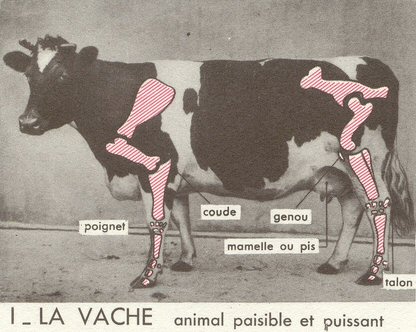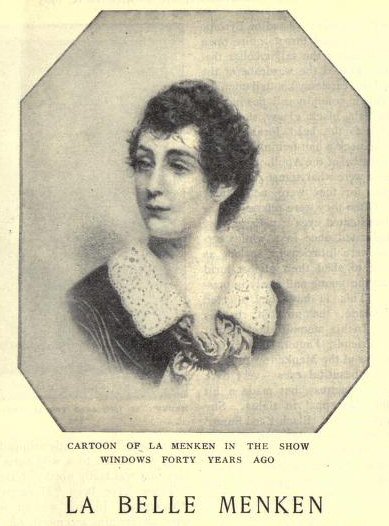Here is the list of contents of the tenth book of Pliny The Elder’s Natural History (c. 77-79 AD):
“The nature of birds. (i-ii) The ostrich, the phoenix. (iii-vi) Eagles, their species; their nature; when adopted as regimental badges; self-immolation of eagle on maiden’s funeral pyre. (vii) The vulture. (viii) Lámmergeier, sea-eagle. (ix-xi) Hawks: the buzzard; use of hawks by fowlers where practised; the only bird that is killed by its own kind; what bird produces one egg at a time. (xii) Kites. (xiii) Classification of birds by species. (xiv-xvi) Birds of ill-omen; in what months crows are not a bad omen; ravens; the horned owl. (xvii) Extinct birds; birds no longer known. (xviii) Birds hatched tail first. (xix) Night-owls. (xx) Mars’s woodpecker. (xxi) Birds with hooked talons. (xxii-v) Birds with toes: peacocks; who first killed the peacock for food; who invented fattening peacocks; poultry – mode of castrating; a talking cock. (xxvi-xxxii) The goose who first introduced goose-liver (foie gras); Commagene goose; fox-goose, love-goose, heath-cock, bustard; cranes; storks; rest of reflexed-claw genus; swans. (xxxiii-v) Foreign migrant birds: quails, tongue-birds, ortolan, horned owl; native migrant birds and their destinations – swallows, thrushes, blackbirds, starlings; birds that moult in retirement: turtle-dove, ring-dove. (xxxvi) Non-migrant birds: half-yearly and quarter-yearly visitors: witwalls, hoopoes. (xxxvii-xl) Mernnon’s hens, Meleager’s sisters (guinea-hens), Seleucid hens, ibis. (xli) Where particular species not known. (xlii-v) Species that change colour and voice: the divination-bird class; nightingale, black-cap, robin, red-start, chat, golden oriole. (xlvi) The breeding season. (xlvii) Kingfishers: sign of fine weather for sailing. (xlviii) Remainder of aquatic class. (xlix-li) Craftsmanship of birds in nest-making; remarkable structures of swallows; sand-martins; thistle-finch; bee-eater; partridges. (lii f.) Pigeons – remarkable structures of, and prices paid for; (liv f.) Varieties of birds’ flight and walk; footless martins or swifts. (lvi) Food of birds. Goat-suckers, spoon-bill. (lvii) Intelligence of birds; gold-finch, bull-bittern, yellow wagtail. (lviii-lxl) Talking birds: parrots, acorn-pies; riot at Rome caused by talking crow. (lxi) Diomede’s birds. (lxii) What animals learn nothing. (lxiii) Birds, mode of drinking; the sultana hen. (lxiv) The long-legs. (lxv f.) Food of birds. Pelicans. (lxvii f.) Foreign birds: coots, pheasants, Numidian fowl, flamingos, heath-cock, bald crow or cormorant, Ted-beaked or Alpine crow, bare-footed crow or ptarmigan. (lxix) New species: small cranes. (lxx) Fabulous birds. (lxxi) Who invented fattening of chickens, and which consuls first prohibited? who first invented aviaries? Aesop’s stewpan. (lxxiii-lxxx) Reproduction of birds: oviparous creatures other than birds; kinds and properties of eggs; defective hatching and its cures; Augusta’s augury from eggs; what sort of hens the best? their diseases and remedies; kinds of small heron; nature of puff-eggs, addled eggs, wind-eggs; best way of preserving eggs. (lxxxi f.) The only species of bird that is viviparous and suckles its young. Oviparous species of land animals. Reproduction of snakes. (lxxxvi-vii) Reproduction of all land animals; posture of animals in the uterus; animal species whose mode of birth is still uncertain; salamanders; species not reproduced by generation; species whose generated offspring is unfertile; sexless species. (lxxxviii-xc) Senses of animals: all have sense of touch, also taste; species with exceptional sight, smell, hearing; moles; have oysters hearing? which fishes hear most clearly? which fishes have keenest sense of smell? (xci-iii) Difference of food in animals: which live on poisonous things? which on earth? which do not die of hunger of thirst? (xciv) Variety of drink. (xcv f.) Species mutually hostile; facts as to friendship and affection between animals; instances of affection between snakes. (xcvii f.) Sleep of animals; which species sleep?”
Now, imagine the scene. It was shortly after breakfast time on a cold and storm-tossed morning in the 1950s at the home of the twentieth century’s most magnificent pamphleteer. Dobson had eaten his bloaters. Marigold Chew had something eggy. They were still sitting at their breakfast table. Outside, hailstones were pinging.
“Marigold, o my darling dear,” boomed Dobson, “I have devised a marvellous plan! Listen carefully. You often comment upon what you consider to be my breathtaking ignorance of the natural world. And though I usually swat away your charges, as a giant may swat away a dwarf, I have, this day, found within myself a reservoir of humility, and I must admit there is a certain truth in what you say.”
Marigold Chew interrupted here, to suggest she capture Dobson’s words upon a tape recorder for the settling of any future contretemps, but the pamphleteer pressed on.
“That being so,” he said, “My plan is to increase my knowledge in the best way possible, and what method could be more efficacious than to write a book about what I do not know? And not just any book. I shall take as my guide that great ancient encyclopaedia by Pliny The Elder, the Natural History, and rewrite it in its entirety! To ensure I cover the sweeping width and breadth of all natural phenomena, I shall follow slavishly the chapter and section headings of the great work, but, subjoined to them, the texts shall be my own! Is that not a fantastic plan and a superb way to extend my knowledge of that which you claim me to be ignorant.. of, again, I think, if I am to be grammatically sound?”
“Are you sure you mean ‘subjoined’, Dobson?” asked Marigold Chew, who was in chucklesome mood.
“I am not one hundred percent certain, no, but let that pass, o my inamorata. The thing is, I have decided to begin the project this very day, not at the beginning, but plunging straight in to the tenth book of Pliny, which you will recall is the one in which he addresses matters ornithological. That is an area in which you suggest my ignorance is boundless and unfathomable, so it will be the perfect test bed. And no, I am not sure I mean ‘test bed’, but let that pass too, for the time being.”
“I am quite happy to do so,” said Marigold Chew, “For now my eggy breakfast is digested, I am going off and out to a beekeeping bonanza jamboree. Get thee to thy escritoire, and when I return I shall be happy to have you read to me the initial scribblings of your Natural History, a book I am sure will knock Pliny from his plinth.”
Dobson took this repartee in good part, scurried to his escritoire, sharpened a pencil, and flung open his dusty copy of Pliny at the tenth book. The nature of birds. (i-ii) The ostrich, the phoenix, he read. He closed his eyes and tried to summon a vision of an ostrich and a phoenix, first separately, then together. He was determined not to cheat by reading what Pliny The Elder had had to say on the subject nearly two thousand years ago. Then the pamphleteer shook his head, like a man waking from a jarring dream, opened his eyes, and began to scribble with his sharpened pencil on the first page of a brand new notepad.
Both the ostrich and the phoenix, he wrote, are birds, the one real, the other mythical. On the front of the head of the real bird, there is a beak. And, lo!, what do we find on the front of the head of the bird of myth? It too has a beak! And this is not the only feature they have in common, for the bodies of both birds bear plumage in the form of feathers.
Dobson looked upon what he had done, and saw that it was good. No doubt there would be more to say about both the ostrich and the phoenix, but he felt he had, at the very least, cracked the method he planned to employ. Pliny would be his guide, but only his guide. The grand sweeping paragraphs of majestic prose would be Dobson’s alone. He went to take a post-breakfast nap.
When he awoke, the pamphleteer’s brain was befuddled after a series of dreams, the details of which, so vivid in sleep, vanished pfft! the instant his head rose from the pillow. He opened a can of revivifying Squelcho! and poured it into a tumbler, then sat again at his escritoire to consult his Pliny. Eagles… vultures… hawks… owls… woodpeckers… it was a long, long list of things with beaks and feathers! Dobson threw his pencil across the room, donned his greatcoat and his Belgian Post Office Inspector’s boots, and went out in the teeth of the hailstorm to trudge along the towpath of the filthy old canal to clear his head. He saw a number of birds while on his trudge, not one of which was either an ostrich or a phoenix. He threw a pebble at a swan. He stopped in at Old Ma Purgative’s Canalside Lobster Hatchery ‘n’ Winter Sports Togs Bazaar, and browsed among the lobsters and the winter sports togs, but in spite of the Old Ma offering bargains galore in a special ‘hailstorm sale’, Dobson, enmired in penury as ever, bought nothing. Eventually he trudged back home, passing the puddle in which the pebble he had thrown at the swan had somehow fetched up, as pebbles do. And as pamphleteers do, he returned to his escritoire, sharpened another pencil, and, jaw set in determination, cast his eye over the Pliny. Peacocks… bustards… swans… hoopoes… partridges… goat-suckers… this last reminded Dobson that he had a goat-milk popsicle in the refrigerator, and he was about to go and fetch it, for a midmorning snack, when, towards the end of the contents of Pliny’s tenth book, he read instances of affection between snakes and a bomb exploded inside his brain.
Suddenly Dobson recalled the dream from which he had awoken befuddled after his nap. He remembered it in every last detail, for it was his recurring dream, the one that flickered in his sleeping cranium on so many, many nights, and in so many, many daytime naps, and had done since infancy. He turned to a fresh page of his notepad, and began scribbling.
When I was a tot, he wrote, I had a favourite bedtime story which I implored my ma or pa to read to me before I fell asleep. I drank my bedtime beaker of milk of magnesia and settled my little head on my little pillow, and listened, night after night, to the tale which, ever since, has haunted my dreams, and about which it is incomprehensible that I have not written a pamphlet until today. Well, thanks to Pliny The Elder, now I can address that omission. The story began as follows:
Once upon a time there was a boa constrictor named Dagobert. He was loitering on a verdant slope when he happened to spot a passing vole. Dagobert uncoiled himself, pounced, sank his fangs into the tiny vole, and gulped it down in one fangsome mouthful. But before his digestive juices could begin to reduce the paralysed but yet living vole into nourishing pulp, along came a viper named Clothgard.
“My oh my!” thought Dagobert, “What a lovely viper she is. I feel a great pang of affection for her.”
Clothgard herself was a sore vexed viper, for she had not eaten for many days.
“O boa constrictor loitering on the verdant slope, canst thee help a sore vexed viper who has not eaten for many days? My name is Clothgard,” hissed Clothgard.
So mighty were the pangs of affection felt by Dagobert that he immediately regurgitated the vole and offered it to the famished viper.
“Why thank you,” she hissed, “You are quite the most charming boa constrictor it has ever been my pleasure to meet.”
There was more to the story, much more, but it was always around this point that, as a tot, I fell into my golden slumbers, and ma or pa placed the storybook gently by my pillow and tiptoed away.
This you will recognise, I expect, as the opening of Dobson’s important pamphlet The Significance, In My Long-Ago Infancy, Of An Undigested Vole (out of print). He was still scribbling away furiously, possessed by a pamphleteer’s demons, when Marigold Chew arrived home. Thinking he was at work on his revision of Pliny, she did not interrupt him, but went straight into the back garden with the new bees she had brought back from the bonanza jamboree. Not until a few days later, when she asked Dobson if he had yet written his chapter on the nature of puff-eggs, addled eggs, and wind-eggs, did she learn that the pamphleteer had abandoned his Pliny.
“Oh that,” he said, over breakfast, “It’s just one bird after another. I can’t be doing with it.”




